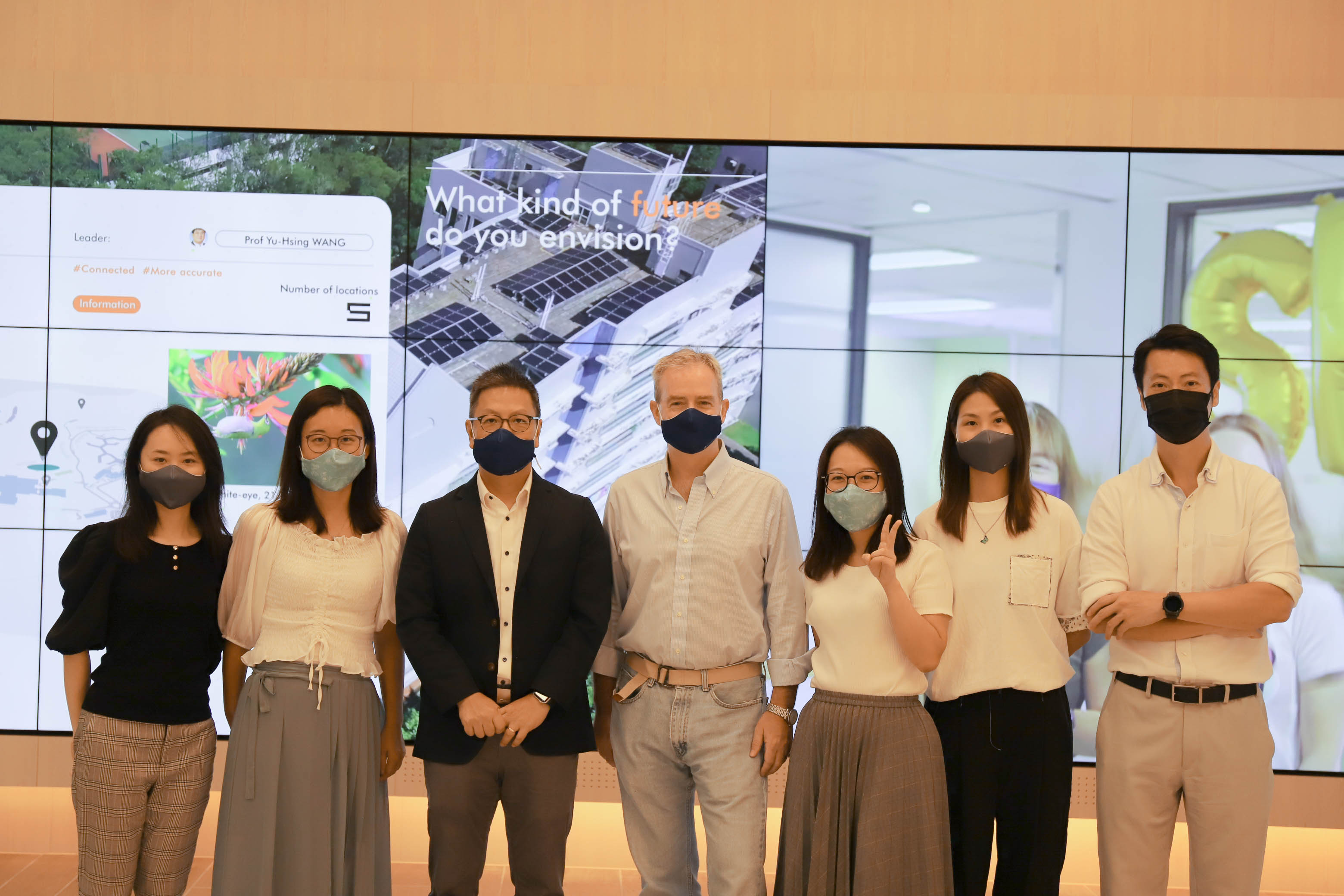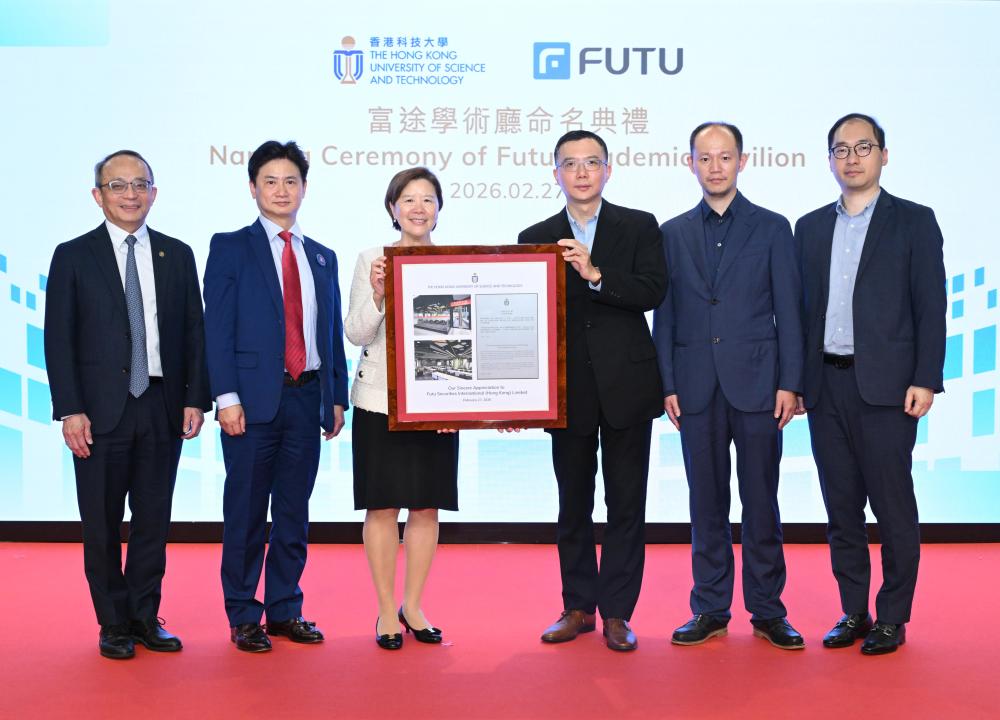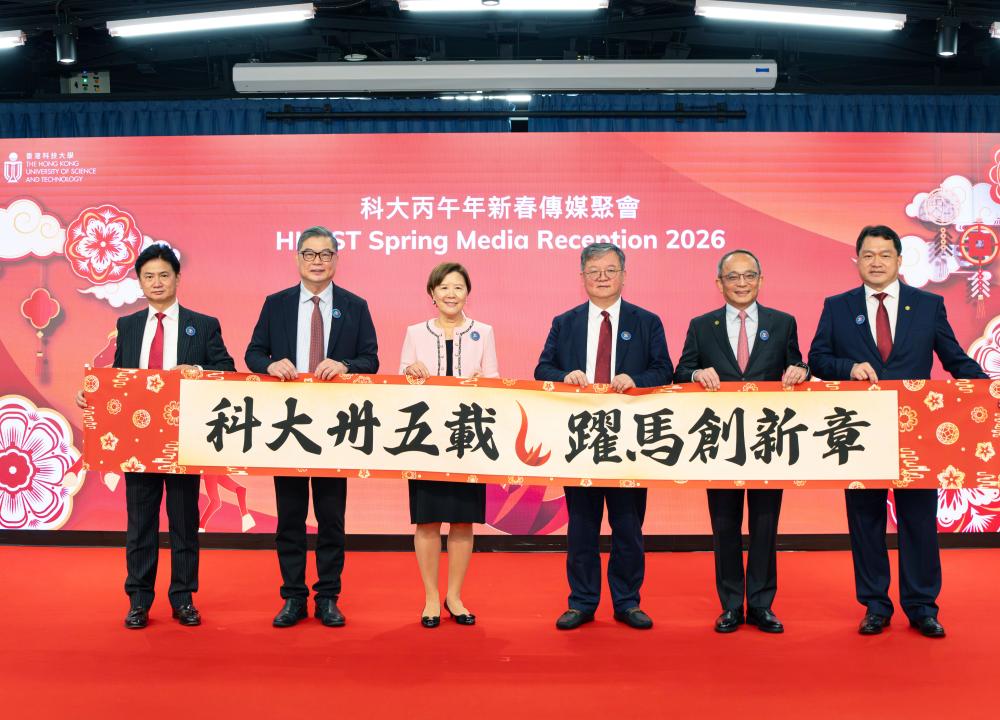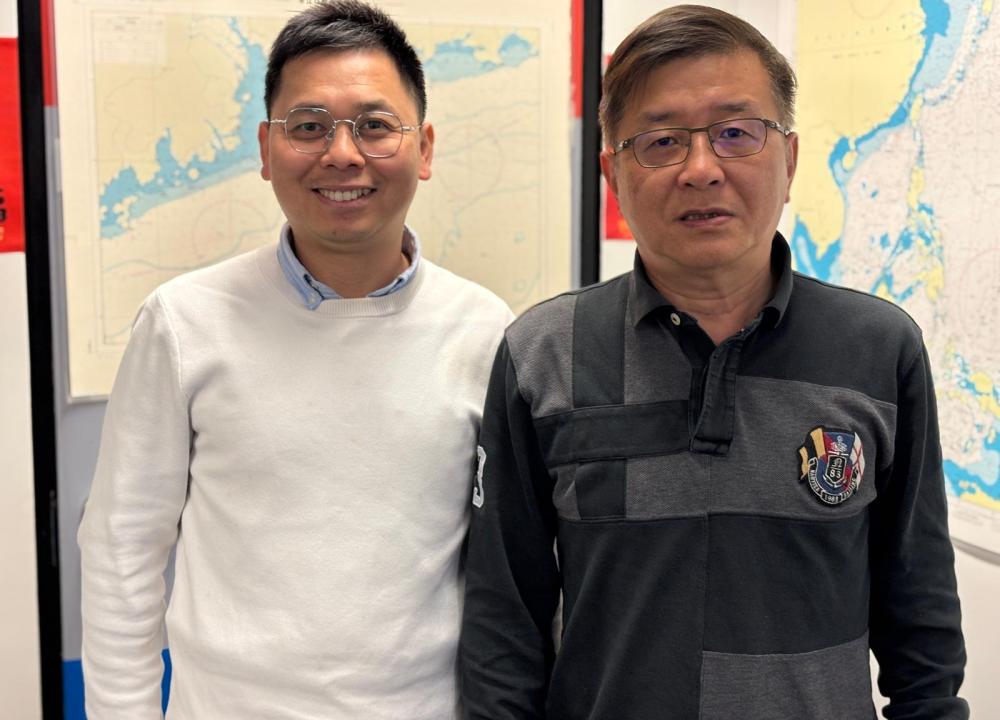HKUST Establishes New Sustainability/Net-Zero Office
The Hong Kong University of Science and Technology (HKUST) is strengthening its commitment to building a sustainable culture and environment while enhancing its goal on attaining a net zero by establishing a new Sustainability/ Net-Zero Office.
This new Office will oversee the implementation of the University’s new sustainability strategic plan – the 2028 Sustainability Challenge - where energy consumption is set to be cut by 15 per cent, and the amount of waste to be reduced by 75 per cent as compared to the 2014 baseline year. The strategy also includes targets for water, landscape and biodiversity, and a new category focusing on well-being, reflecting our sustainability mission of “creating the conditions for people to thrive, over time, and within planetary boundaries1.” The same approach will be adopted in the new HKUST(GZ) campus as well to be opened next September.
This new target was set against a successful completion of HKUST 2020 Sustainability Challenge, in which HKUST managed to cut landfill waste by half, or 1,665 tons, since 2014. During the same period, energy consumption was also down by 7.9% despite the addition of four new buildings on the campus.
Mr. Davis BOOKHART, Office Director and formerly Head of the Sustainability Unit in charge of the 2020 goal, said the challenge of reaching net-zero carbon emissions by 2050 will require all members of the community to contribute.
“To achieve these ambitious goals, we need transformational thinking. A net-zero world does not look like today, so we have to be willing to rethink everything, be bold, and open to testing new ideas and approaches.”
As part of this effort, the Office launched a new “Incentive Scheme for Net-Zero Carbon Research Projects” initiative in collaboration with HKUST’s GREAT Smart Cities Institute (GSCI) to encourage HKUST members to undertake large-scale research projects that can contribute to campus and regional net-zero carbon goals. Winning project teams receive up to $100,000 plus funding for the hiring of postgraduate students to undertake preliminary study and assessment, before producing an impact project proposal (with a proposed budget of at least $5 million) to be submitted for further funding opportunities, such as HKSAR Government’s Theme-Based Research Fund (TBRF), Green Tech Fund, or other supported research grant.
Meanwhile, Sustainable Smart Campus as a Living Lab (SSC) – a flagship scheme launched three years ago for our students, faculty, staff and alumni to test out their innovative ideas on campus, will also be implemented in HKUST(GZ) – is another key piece of the sustainability strategic plan. The 30 supported SSC projects include Smart Water Network - a new diagnostic paradigm for water leakage; Digital Twin - a virtual replica of HKUST’s physical assets for better planning and test-out of new initiatives; indoor air-quality sensors; and AI-driven tracking systems for trees and bird species.
HKUST has long strived to embed sustainability into its operations, curriculum and co-curricular activities. That includes the installation of the city’s largest solar power system, expected to help reduce 1.5 million kg of carbon emission per annum over a 25 year period. New programs such as BSc in Sustainable and Green Finance (SGFN) will be launched next year, and more than 90% of undergraduate students graduate with at least one sustainability course under their belts. The University has also strengthened communication with its members on the real-time data and outcome generated by different SSC projects and other University sustainability initiatives, to facilitate exchange of ideas on sustainable and smart solutions.
1Proposed by a group of environmental scientists in 2009, the planetary boundaries concept presents nine quantitative planetary boundaries within which humanity can continue to develop and thrive for generations to come. They are climate change, biodiversity loss, ocean acidification, ozone depletion, atmospheric aerosol pollution, freshwater use, biogeochemical flows of nitrogen and phosphorus, land-system change, and release of novel chemicals.
https://www.stockholmresilience.org/research/planetary-boundaries/the-nine-planetary-boundaries.html
For media enquiries, please contact:
Anita Lam
Tel: 2358 6313
Email: anitalam@ust.hk
Lindy Wong
Tel: 2358 6306 / 5190 7882
Email: lindywong@ust.hk














